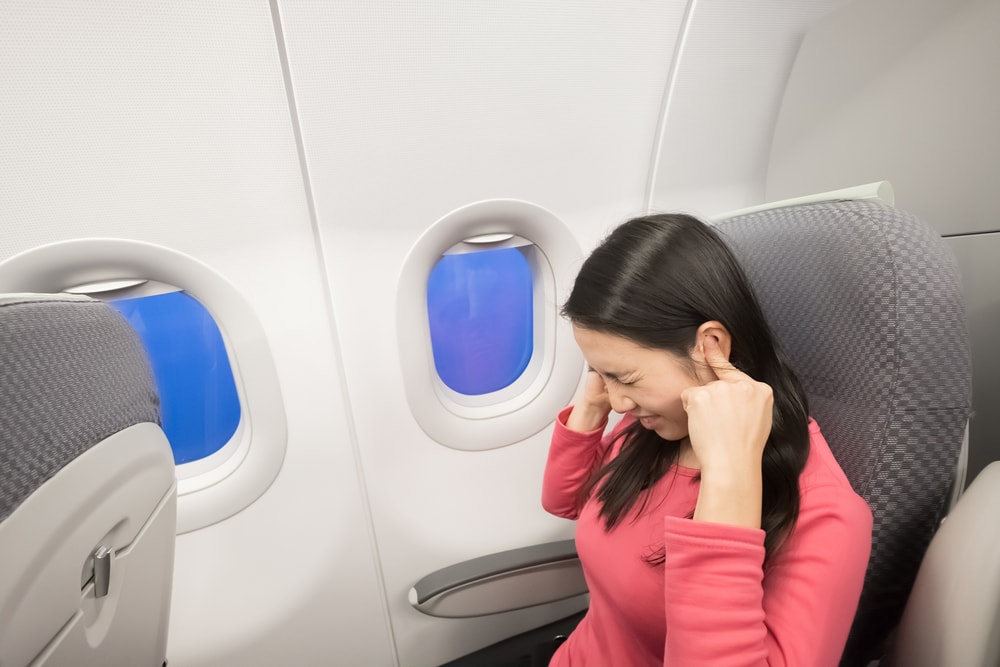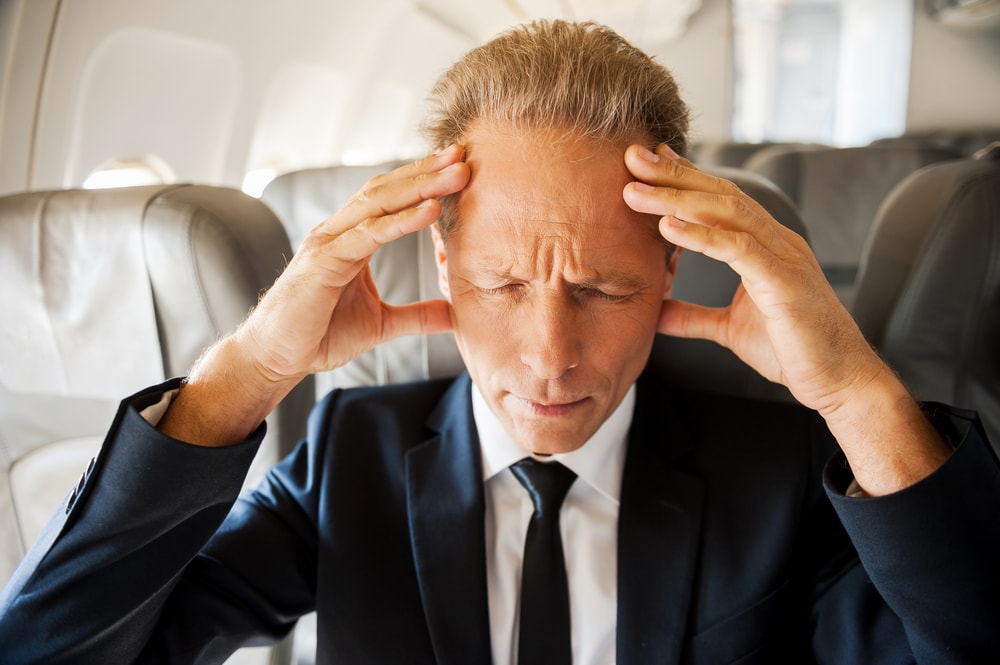You’ve likely heard of tennis elbow, but what about airplane ear? For many travellers, it’s an unpleasant addition to their flight. Here’s why it happens and what you can do to treat it.
What is ‘Airplane Ear’?
This is when you experience ear discomfort when flying in a plane. Usually this happens as the aircraft takes off and descends for landing.
What causes the pain?
Your ear has three parts: the outer ear (including the ear canal), the middle ear, and the inner ear. The eardrum comes between the outer ear and the middle ear. The middle ear is connected to the back of your nose by a thin canal called the Eustachian tube. Air is constantly moving through the Eustachian tube and into the middle ear. This balances the pressure in the middle ear with that in the inner ear.
The air pressure in the middle ear is usually the same as the air pressure outside of the body. However, air pressure decreases at higher altitudes. When a plane takes off, and when it descends for landing, the altitude changes rapidly.While the plane has systems to reduce the effects of these sudden changes during take-off and landing, some still occur. The pain is caused by unequal pressure that develops between the air in the middle ear and the air outside the ear.
When a plane’s air pressure changes suddenly, it can create a vacuum in the middle ear that pulls the eardrum inward. This can cause pain and muffle sounds. In more severe cases, the middle ear can fill with clear fluid. In the most severe cases, the eardrum can rupture. Fortunately, this is rare.
Symptoms
- Dizziness
- Discomfort or pain in one or both ears
- Hearing loss (slight)
- Sensation of stuffiness in the ears
If the condition is severe or prolonged:
- Earpain
- Feeling of pressure in the ears
- Moderate to severe hearing loss
- Tinnitus (ringing, buzzing sounds in the ear)
- Vertigo with nausea
- Bleeding from ears
How do I deal with this?
Ideally, anyone with a cold, respiratory infection, ear infection, etc., should not fly. Of course, not many people will cancel their travel plans for this reason. The following may help relieve symptoms of ear pain when flying:
- Suck sweets or chew gum when the plane begins to descend. Air is more likely to flow up the Eustachian tube if you swallow, yawn or chew. For babies, it is a good idea to feed them or give them a drink at the time of descent to encourage them to swallow.
- Valsalva manoeuvre. Take a breath in, then try to blow out gently with your mouth closed and your nose pinched shut. (In this way, no air is blown out but you are gently pushing air into the Eustachian tube.) If you do this, you may feel your ears go ‘pop’ as air is pushed into the middle ear. This often cures the problem. Repeat this every few minutes until landing, or whenever you feel any discomfort in the ear.
- Do not sleep when the plane is descending to land. (Ask the flight attendant to wake you when the plane starts to descend.) If you are awake, you can make sure that you suck and swallow to encourage air to get into the middle ear.
- Use filtered earplugs. These earplugs slowly equalise the pressure against your eardrum during ascents and descents.
The above usually works for most people. However, if you are particularly prone to develop airplane ear, you may wish also to consider the following in addition to the tips above:
- Antihistamine tablets. Take the recommended dose the day before and the day of travel. This may help to limit the amount of mucus that you make.
- A decongestant nasal spray can dry up the mucus in the nose. Spray the nose about one hour before the expected time of descent. Spray again five minutes later. Then spray every 20 minutes until landing.
If these measures fail to prevent airplane ear, any pain (even severe pain) normally subsides quickly. Take some painkillers to relieve the discomfort; however, if the pain and dulled hearing does not clear within a few days, please consult an ENT Surgeon.
By Dr. Mallina Sivarajasingam MBBS (MAHE), MS ORL-HNS (UKM), CMIA (NIOSH), Fellowship Head & Neck Oncosurgery (Australia), Consultant ENT, Head & Neck Surgeon Tropicana Medical Centre.
A version of this article was originally published in The Expat magazine (May 2017) which is available online or in print via a free subscription.
"ExpatGo welcomes and encourages comments, input, and divergent opinions. However, we kindly request that you use suitable language in your comments, and refrain from any sort of personal attack, hate speech, or disparaging rhetoric. Comments not in line with this are subject to removal from the site. "




















